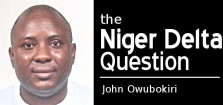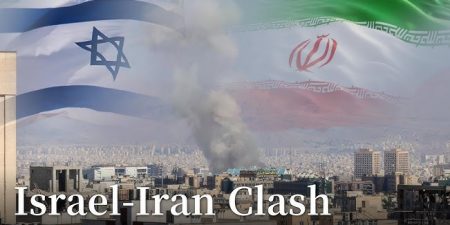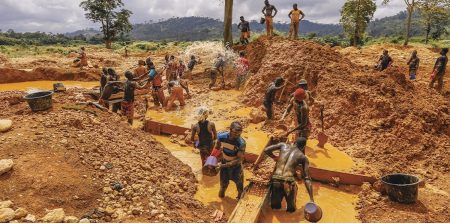 06 February 2012, Sweetcrude, Port Harcourt – Upon making a decision to enter a commentary on this discourse I made a decision not to cheapen it by labelling the gentleman, Sanusi Lamido Sanusi as a sponsor, member or sympathiser of Boko Haram or by connecting him with a Northern agenda that may exist only in the imaginations of newspaper columnists!
06 February 2012, Sweetcrude, Port Harcourt – Upon making a decision to enter a commentary on this discourse I made a decision not to cheapen it by labelling the gentleman, Sanusi Lamido Sanusi as a sponsor, member or sympathiser of Boko Haram or by connecting him with a Northern agenda that may exist only in the imaginations of newspaper columnists!
A simple definition of the Islamic principle of Zakat is the payment by the rich, privileged, able and free muslims of parts of their earnings to support specific categories of people. Lamido Sanusi, the CBN governor who drew graphic contrasts between the perceived imbalance in the distribution of federal resources with the upsurge of violence in the North, per Boko Haram is an Islamic scholar who does not only believe in but has given lectures on the subject of zakat.
At a Kaduna conference in 2000, Malam Sanusi delivered a lecture on Islamic economics titled “Institutional Framework of Zakat: Dimensions and Implications.” Again at a 2001 seminar in Abuja he spoke on “Basic Needs and Redistributive Justice in Islam – The Panacea to Poverty in Nigeria.” Although the title of the 2001 paper was wider (poverty in Nigeria) the real discussion was unpretentiously narrowed to the Islamic North; in both discussions he espoused the mainstream position that Zakat is an instrument for redistributing income. Again in both papers he made a notable argument that government instead of the emirs of the North should play the role of redistributing Zakat.
Sanusi Lamido is not the kind of man you don’t take seriously or whose utterances you spin jokes around. Apart from being the governor of the CBN, the man is heir presumptive to the Kano Emirate and an Islamic scholar of repute who obtained a degree in Sharia from the African International University, Khartoum, Sudan in 1997, sixteen years after graduating from the Ahmadu Bello University with a degree in Economics. From his antecedents, especially on the subject of Zakat (his view that government should assume the role of distributor) and his recent utterances on the distribution of resources, it would not be wrong to suggest that Malam Sanusi would have the federal government dump the principle of derivation and distribute the country’s resources Zakat style, whereby resources derived from the Niger Delta are distributed to the poor states of the North to breach the sharp inequities between states. While the operatives of Boko Haram are demanding the implementation of Sharia in the whole of Nigeria, that a Christian should never rule Nigeria again and a motley of other inanities, Malam Sanusi, the governor of our central bank, is postulating that the emergence of Boko Haram is traceable to the structural imbalance of the country’s economic structures.
Whose instructions at Ahmadu Bello does the malam rely on to posit that the federal government in a federal state is a distributor of economic resources? Is the learned malam falling into the mistake of the unenlightened who presume that the role of the federal government is to grab the economic assets of the component states for redistribution? Does the Malam not know that the whole essence of adopting federalism is the recognition of the absence of homogeneity, the acceptance that component units have different aspirations, priorities and developmental agenda? In agitating for their own states from old structures, applicants for states creation enumerate the many differences between them and units of the older states. Is it the malam’s idea of economic justice that Christian states in the Niger Delta should pay Zakat or cede their resources to develop muslim states in the North created in response to senseless agitation and the need for competitive multiplication for the coveted federal jobs and slots, instead of on the basis of self-sufficiency and viability? Can the CBN governor tell Nigerians how many times in the year the Accountants General of the 50 states of the United States, or the 28 states of India or the 26 states of Brazil, converge on Washington DC, New Delhi and Brasilia to share the resources of rich states for poor states? The oil companies in the state of Alaska which was bought from the Russians by the American government with federal money pay only tax to the American government. All royalties are retained by the state and not a cent of Alaskan oil money gets redistributed to poor states such as Mississippi to assuage some blackmail that the poverty in that state is engendering crime that could impact Alaska. Should we in the Niger Delta, a people of sound Christian convictions, continue to tolerate the deployment of our resources for the actualisation of agenda that run counter to our beliefs? Should we continue to play along while states are created for participation in the wealth of the Niger Delta? Should states of the Niger Delta underwrite the bills of other states that are not viable enough to provision their bureaucracies and populations?
Where is the economic sense in that, Mr. CBN Governor? The federal government in a federal state is a legation, a body of representatives who administer those interests that the component units share commonly, like currency, diplomacy, armed forces, etc, all enumerated in the exclusive legislative list and the component states source their own revenue. Federal funds are supposed to be deployed in states for emergencies, relief for disasters, federal infrastructure and federal administrative units within the component states, not doled out on consistent monthly basis to unviable states on the basis of demographic statistics.
The moral behind the involvement of Malam Sanusi in the Boko Haram apology train is the inescapable conclusion that sympathy for the agenda of Boko Haram lies deeper than most Nigerians think and that more than a few intellectuals in the North align with their aspirations, if not with their tactics. The honourable concept of Zakat as we know it is practiced between Muslims. To expect Christian populations to endure privations for the benefit of folk whose final ambition is to undermine their religious convictions and supplant them with Islam, is to ask too much.



